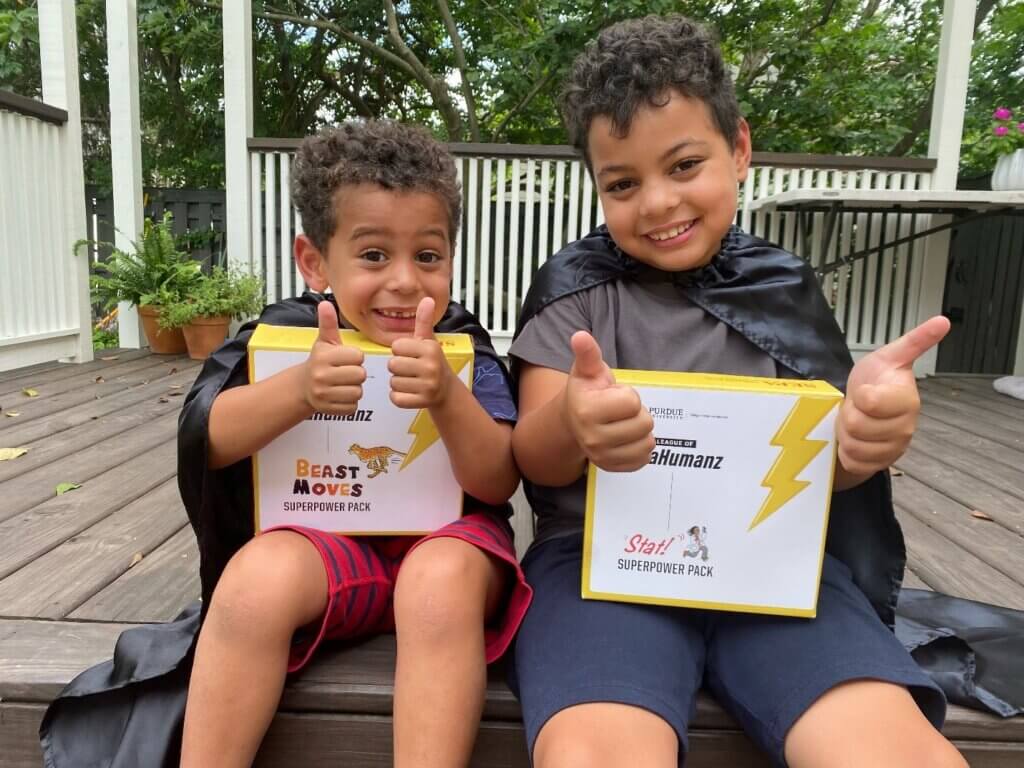
A feature story writer for Popular Science magazine doing a story about ways to help children pursue veterinary careers recently turned to the Purdue University College of Veterinary Medicine for an expert who could address that topic. The well-known Popular Science contributor, Noah Lederman, also has had his work featured in the Los Angeles Times, Scientific American, The Boston Globe, and The Washington Post. The source he turned to at Purdue for his latest Popular Science article is Dr. Sandra San Miguel, associate dean for engagement.
Lederman’s article, which was just published this month, is entitled, “7 ways to support a kid who wants to care for animals.” The subheading adds, “If you know where to look, there are plenty of educational opportunities for a child who wants to be a veterinarian.” In describing some of those opportunities, Lederman gives the League of VetaHumanz, based out of Purdue Veterinary Medicine, as an example.
Explaining that the concept of VetaHumanz was “Inspired by the metahumans of the DC comics universe,” Lederman quotes the League’s origin story in describing how VetaHumanz “wield their superpowers to prevent threats to animal and public health across the globe.” The League of VetaHumanz was launched by Purdue Veterinary Medicine in 2020 as an alliance of veterinary superheroes in academia, veterinary practice, research, government, and industry who are committed to engaging with under-resourced communities across the globe to provide access and support for children who aspire to careers in the veterinary profession.
Lederman then describes how, with support from the National Institute of General Medical Sciences (NIGMS) of the National Institutes of Health, Dr. San Miguel’s team sends trained veterinary practitioners into K-4 classrooms around the country to educate students with age-appropriate and culturally-responsible curriculum. “We’re not visiting [once a year] on career day and you never see us again,” Dr. San Miguel is quoted as saying in the story. Lederman points out that the program involves a partnership between the League and selected schools or community centers, where veterinary role models work with young students at least once a month.
The article also highlights the League’s “Superpower Packs,” which are inspiring, STEM educational experiences that can be used independently by children who lack direct access to veterinary role models. Lederman writes, “The packs, San Miguel says, informs kids that ‘I can be a vet. I’m doing vet stuff.’” Lederman then explains how Dr. San Miguel was inspired by research on the Batman Effect, where scholars asked young subjects to impersonate an exemplary character, like Batman, and found that kids in the study who took on a commendable character’s perspective persevered in their work, as compared to children who did not. “If you take on an alter ego, you lose your personal insecurities,” Dr. San Miguel is quoted as saying when summarizing the research. Lederman adds, “So of course, the pack includes a cape.”
The article also points out that, though the SuperPower Packs are only available to qualified institutions, the League of VetaHumanz offers all of the lessons and books on its website for free to young children interested in the profession.
Read the full article on Popular Science.
